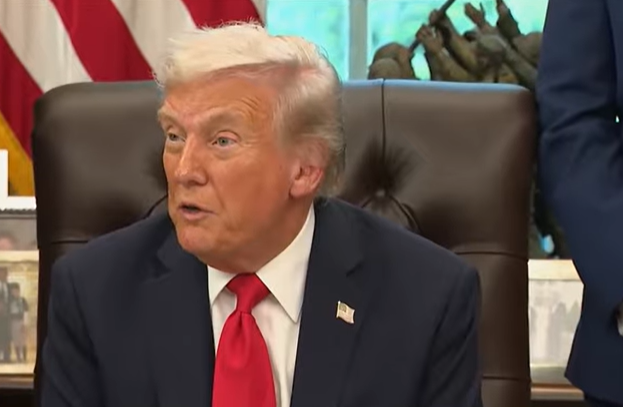In a dramatic turn of events, former President Donald Trump has taken bold steps by seeking an astronomical $230 million in compensation from the Department of Justice. The reason? Trump claims that politically motivated federal investigations have unjustly targeted him during and after President Joe Biden’s administration. This development, initially reported by The New York Times, has taken the political world by storm, raising critical questions about justice, partisanship, and accountability in the American legal system.
Background of the Legal Battle
The relationship between Donald Trump and the Department of Justice has been tumultuous, to say the least. From his time in the White House to his post-presidency years, Trump has faced numerous legal inquiries touching on various aspects of his political and personal life. According to reports, these investigations have spanned a range of alleged offenses, from financial misconduct to interference in electoral processes.
Nature of the Investigations
The probes initiated during Trump’s presidency and into the Biden era fall under scrutiny in this lawsuit. Trump, well-known for his confrontational style, has repeatedly labeled these investigations as witch hunts orchestrated by his political adversaries. These include the high-profile Mueller investigation into Russian collusion during the 2016 presidential campaign and subsequent inquiries into his business dealings and tax returns.
A significant point in Trump’s lawsuit is the claim that these investigations were politically driven, aiming to undermine his reputation and influence. Trump’s legal team argues that the vast resources deployed in these probes had little merit and were more about political retribution than justice. As an essential facet of the case, Trump is asking the Department of Justice to compensate him for the financial damage and emotional stress these investigations have supposedly caused.
The Legal Framework
Seeking such a monumental amount from the DOJ is unprecedented and brings forward complex legal questions. For Trump to succeed, his lawyers must prove beyond reasonable doubt that these investigations were indeed politically motivated and not in the public interest. This poses a challenging task, as the DOJ is typically afforded significant leeway to conduct investigations as they see fit.
Presidential Immunity and Accountability
Another notable element of this case is the ongoing debate over presidential immunity. While presidents enjoy a broad scope of immunity while in office, Trump’s claims focus on actions taken after his presidency. Thus, this lawsuit might pave the way for new precedents related to post-presidency activities and the limitations of immunity.
Furthermore, it challenges the concept of accountability for those who wield immense power. Trump’s argument suggests that if investigations are proven politically motivated, they should entail consequences for those who initiate them. This case might lead to an examination of the checks and balances within government institutions.
Examining the Political Implications
The case’s implications stretch beyond legal boundaries, touching the core of partisan politics in the United States. It raises questions about the extent to which political considerations influence federal investigations and how this could shape public trust in governmental institutions.
Impact on Trump’s Political Persona
For Trump, this lawsuit is also a strategic move in maintaining his political persona. Ever since stepping onto the political stage, he has positioned himself as an outsider challenging a corrupt establishment. This claim against the DOJ reinforces his narrative and might bolster his support base, particularly among those already skeptical of governmental processes.
However, it’s a double-edged sword. If the lawsuit fails, it could undermine Trump’s allegations of bias and unfair treatment, while a victory might make him a hero for those who see him as a victim of a politicized system.
Public Reaction and Media Response
Public opinion remains deeply divided on this issue, closely mirroring the divides seen in Trump’s presidency. Supporters argue this move as a courageous stand against government overreach, while critics view it as a self-serving attempt to rewrite history and evade accountability.
Media coverage, unsurprisingly, has also split across familiar partisan lines. Outlets generally critical of Trump are framing this lawsuit as yet another gambit to maintain relevance and distract from genuine legal issues, while more sympathetic media paint it as a justified fight against an entrenched, biased system.
Conclusion
The unfolding saga of Trump’s lawsuit against the DOJ over supposedly politically motivated investigations serves as a powerful testament to the enduring complexities of American politics and justice. This high-stakes legal battle has the potential to reshape discussions around political accountability, presidential immunity, and governmental checks and balances.
While the outcome remains uncertain, one thing is clear: This case will serve as a major touchpoint in defining the legacy of Donald Trump and might significantly impact how political figures and federal investigations intersect in the future. As observers watch closely, the ramifications of Trump’s quest for $230 million might reverberate throughout the political landscape for years to come.

